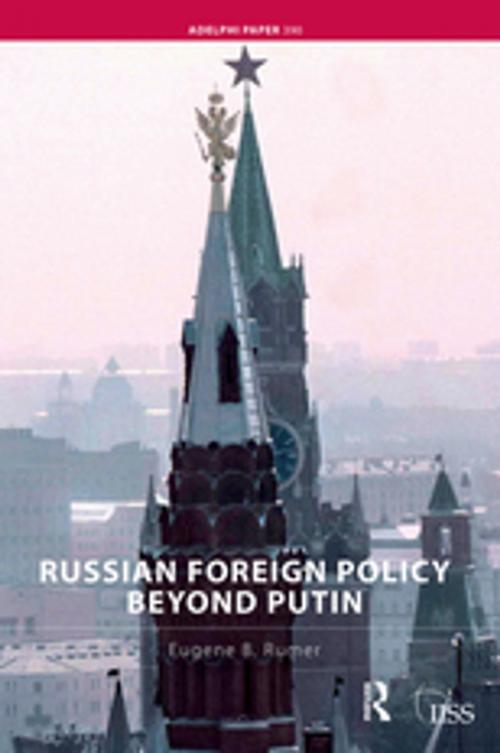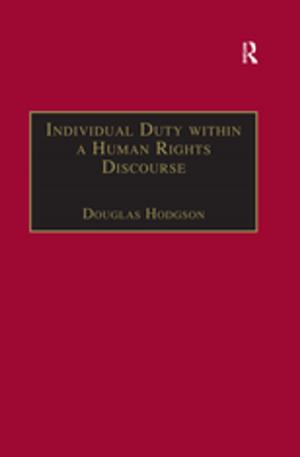Russian Foreign Policy Beyond Putin
Nonfiction, History, Military, Strategy, Social & Cultural Studies, Social Science| Author: | Eugene B. Rumer | ISBN: | 9781351226523 |
| Publisher: | Taylor and Francis | Publication: | October 3, 2017 |
| Imprint: | Routledge | Language: | English |
| Author: | Eugene B. Rumer |
| ISBN: | 9781351226523 |
| Publisher: | Taylor and Francis |
| Publication: | October 3, 2017 |
| Imprint: | Routledge |
| Language: | English |
Russia‘s resurgence as an assertive actor in the global diplomatic arena after a long period of introspection and preoccupation with domestic troubles, and the economic revival that underpins it, are among the most striking developments in international relations of recent years. But what drives Russian foreign policy at the end of the Putin era? To what extent is it shaped by Russia‘s role as a major energy supplier, and how long can the country remain anenergy superpower if indeed it is one? How might Russian foreign policy change in the years ahead? Which way will Russia, faced with the might of growing powers around it, and struggling with the fragility of its economic success and stability at home, choose to face in international relations? This Adelphi Paper examines the domestic context of contemporary Russian foreign policy and its key political, economic, military and security drivers, as well as looking at the contrasting outlook that preceded it, and at how Russia‘s international posture may adjust again in the coming years. It concludes with recommendations for Western policy makers on how to respond to Russia‘s return.
Russia‘s resurgence as an assertive actor in the global diplomatic arena after a long period of introspection and preoccupation with domestic troubles, and the economic revival that underpins it, are among the most striking developments in international relations of recent years. But what drives Russian foreign policy at the end of the Putin era? To what extent is it shaped by Russia‘s role as a major energy supplier, and how long can the country remain anenergy superpower if indeed it is one? How might Russian foreign policy change in the years ahead? Which way will Russia, faced with the might of growing powers around it, and struggling with the fragility of its economic success and stability at home, choose to face in international relations? This Adelphi Paper examines the domestic context of contemporary Russian foreign policy and its key political, economic, military and security drivers, as well as looking at the contrasting outlook that preceded it, and at how Russia‘s international posture may adjust again in the coming years. It concludes with recommendations for Western policy makers on how to respond to Russia‘s return.















